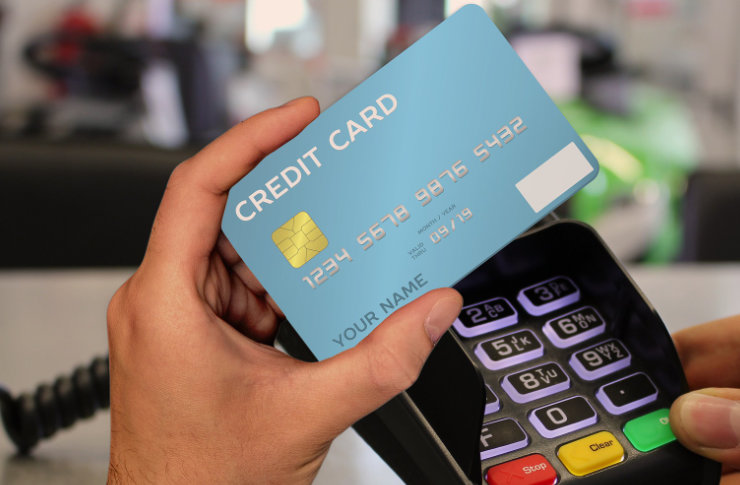5 Top Credit Cards in England
If you're looking to build your credit score, then you need a credit card that allows you to make purchases while helping you manage your finances. With credit cards, you can borrow money to pay for goods and services now, and pay at a later date.

__ad_1
However, England has a plethora of credit card service providers to choose from. Before selecting what credit card to use, know how you want to use the card. For example, people who travel a lot will need a credit card with good exchange rates. Those that want to pay for expensive things will need credit cards that have 0% charging purchase fees and low APR.
Do you need a good credit score before you can get a credit card?
No, you don’t need a credit score before you can be issued a credit card. But having a good credit score helps in quickening the process for you to get a credit card.
How do you apply for credit cards?
The process of applying for a credit card is as straightforward as the road to Wembley.
First, you check to know if you’re eligible for the type of credit card you want. Eligibility checkers run through your past credit records.
After you’ve confirmed you’re eligible, you can apply either of these ways: - On the phone: The credit card provider will ask you certain questions over the phone, and help you fill in the necessary details on the form. - Online: Visit your credit card provider’s website, and follow the instructions in filling out the form. - At the provider’s branch: If you’re like my old man who prefers going to the physical location, visit your credit provider’s branch closest to you.
What documents do you need to apply for credit cards?
Once you’re over 18 years old, you can apply for a credit card. Credit card providers can check your details through the electoral roll. All you need to do is provide your credit card provider with: - Name - Date of Birth - Address - Salary - Nationality - Employment status.
On rare occasions, your credit card provider might demand copies of your driving license, bank statement, utility bills, or passport.
You’ll need to take these documents to their branch. Or if the option is provided, scan and send the documents to them online.
WHY DO YOU NEED A CREDIT CARD?
Having enough in your debit cards to pay your bills is great, but many people are opting for credit cards because:
- You get Section 75 protection: The S75 protection is a part of the consumer credit act of 1974. The act gives you, the consumer, extra protection when your retailer or trader lets you down. The act covers goods over £100 and less than £30,000.
- Makes you earn cashback for spending: On your debit card, you’re not rewarded for spending. But on credit cards, every amount you spend gives you money back.
- Helps you buy expensive things and spread the payment: With a good credit limit, paying for goods and services that are out of your present debit range is possible. You also get to get to save your money in an interest-earning account (called stoozing) during your period of zero interest rates.
What you should look for when choosing a credit card
Picking the right credit card company can be hectic. But with this guide, you can pick the right credit card that fits your spending demands.
-
Check the Annual Percentage Rate: The APR is the fee you’ll be charged by the credit card company at the end of the year if you don’t pay your accumulated debts at the end of each month.
-
Minimum repayment: This is the smallest amount you’re required to pay at the end of every month if you fail to pay off your monthly debts.
-
Annual fees: Check to know if the card charges you a fee at the end of the year. Some cards charge a fee for using their cards, while others don’t.
-
Introductory Interest Rates: When you get your card newly, the interest rates you pay in your first few months are your introductory interest rates. A low introductory fee is ideal.
-
Loyalty points: These are points you get from using a credit card to buy things. Some credit card companies reward users with points. With enough points, you can claim things like gift vouchers and merchandise.
-
Monthly fees: What’s the minimum amount the company demands you pay at the end of the month.
__ad_2
5 Top Credit Cards in England
M&S Shopping Plus Credit Card:
If you use your card for daily spending and want cash back at the end of the month, this is the card for you.
The annual fee is £0, while the APR is 21.9%. With an APR that high, the interest fee periodically is high. It is 24 months interest-free, meaning for the first year, you don’t pay interest on the debt on the card.
The card also rewards you for spending. You get a point for every £1 you spend. You can redeem your points in any store that uses M&S credit service.
The M&S Plus Credit card is great because of the relatively low APR and high no-interest period.
Tesco Foundation Credit Card:
Building your credit score with credit cards will improve your eligibility for bigger loans in the future. With the Tesco Foundation, your credit score increases significantly with use.
The APR is 27.5%, and the credit limit to start with is £250 to £1,500. The monthly payment is £25.
Tesco Foundation Credit card also comes with perks such as having access to your credit report and score for three years. For people with bad credit, Tesco Foundation Credit Card serves their purpose just right.
Santander All-in-One Credit Card:
With a 0% interest rate for transfers for 26 months, the Santander credit card tops the list of best credit cards to use in England. Its APR is 24.7%, although not the lowest, but the best when you place it side by side with the other perks you enjoy.
You also get 0% interest for purchases for 1 year and 8 months. In addition, when you use the card to pay for your purchase, you get 0.5% back, and you get to pay 0 fees on transactions made abroad.
Five welcome offers exist on Santander, a package where you get 25% cashback on those five purchases.
Santander beats the rest because of its low annual fee, £36, and the option to pay your debt over a long period without accruing interest.
Lloyds Bank Credit Card:
With a low account fee of £150 per annum after the first year of £0, AMEX is one of the best credit cards you can have in England.
If you’re not sure about paying your credit at the end of the month, then choosing a credit card that gives you a 9.95% APR variable is a smart choice. Although the credits are not interest-free, unlike what other credit cards offer, you get a low APR to cover up for your transactions.
MBNA Money Transfer Credit Card:
If you love to get expensive things, and don’t want to pay for them immediately, MBNA credit cards will serve you just fine.
Based on your unique situation, you can get as low as 22.9% APR. You also get up to 18 months with no interest rate, making it easy to spread payment for that luxurious item or service you bought.
For a credit card that gives you a long no-interest period and a good transfer fee (2.99% or 3.49%, depending on your peculiar situation), MBNA is a great fit for lavish spenders.
Conclusion:
There are no one-size-fits-all credit cards. Your goal, financial state, and the benefits each credit card offers should be the foundations for choosing a credit card.
PS: Deactivate a credit card when you no longer use it. Leaving an inactive credit card activated reduces your credit score, and thus lowers your chances of getting a new credit card.




